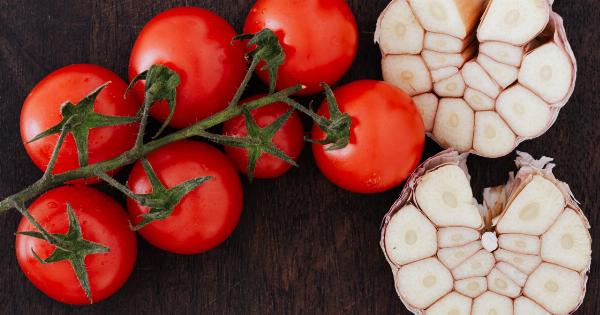Eczema is a chronic, inflammatory skin condition that affects millions of people worldwide. It is characterized by red, itchy, and dry patches on the skin that can range in severity from mild to severe.
While there is no cure for eczema, a combination of proper skin care, topical treatments, and dietary changes can help manage the condition and reduce symptoms.
One dietary change that has shown promise in managing eczema is the use of spices.
Spices not only add flavor to your food, but they also contain powerful anti-inflammatory and antioxidant properties that can help soothe eczema-prone skin and reduce inflammation.
Turmeric
Turmeric is a commonly used spice in many culinary dishes and has been used for centuries in traditional medicine to treat a range of conditions, including inflammatory skin conditions such as eczema.
Turmeric contains a compound called curcumin, which has potent anti-inflammatory and antioxidant properties that can help reduce eczema symptoms.
Curcumin has been shown to inhibit the production of inflammatory cytokines, which play a key role in the development of eczema. Additionally, curcumin has been shown to reduce oxidative stress, which can also contribute to eczema symptoms.
Adding turmeric to your diet is an easy and natural way to help manage your eczema symptoms.
Cinnamon
Cinnamon is another spice that has been shown to have anti-inflammatory properties that can help soothe eczema-prone skin.
Cinnamon contains a compound called cinnamaldehyde, which is responsible for its distinct flavor and also has potent antioxidant and anti-inflammatory effects.
Cinnamon has been shown to inhibit the production of pro-inflammatory cytokines, which can help reduce eczema symptoms.
Additionally, cinnamon has been shown to have antimicrobial properties, which can help prevent infections that can exacerbate eczema symptoms.
Ginger
Ginger is a root that is commonly used as a spice in cooking and has been used for centuries in traditional medicine to treat a range of conditions, including inflammatory skin conditions like eczema.
Ginger contains a compound called gingerol, which has potent anti-inflammatory and antioxidant properties that can help reduce eczema symptoms.
Ginger has been shown to reduce the production of pro-inflammatory cytokines and to inhibit the production of free radicals, which can contribute to eczema symptoms.
Additionally, ginger has been shown to have antimicrobial properties that can help prevent infections that can exacerbate eczema symptoms.
Cloves
Cloves are a spice that are commonly used in baking and have been used for centuries in traditional medicine to treat a range of conditions, including inflammatory skin conditions like eczema.
Cloves contain a compound called eugenol, which has potent anti-inflammatory and antioxidant properties that can help reduce eczema symptoms.
Eugenol has been shown to inhibit the production of pro-inflammatory cytokines and to reduce oxidative stress, which can contribute to eczema symptoms.
Additionally, eugenol has been shown to have antimicrobial properties, which can help prevent infections that can exacerbate eczema symptoms.
Cumin
Cumin is a seed that is commonly used as a spice in cooking and has been used for centuries in traditional medicine to treat a range of conditions, including inflammatory skin conditions like eczema.
Cumin contains a compound called cuminaldehyde, which has potent anti-inflammatory and antioxidant properties that can help reduce eczema symptoms.
Cuminaldehyde has been shown to inhibit the production of pro-inflammatory cytokines and to reduce oxidative stress, which can contribute to eczema symptoms.
Additionally, cumin has been shown to have antimicrobial properties, which can help prevent infections that can exacerbate eczema symptoms.
Cayenne Pepper
Cayenne pepper is a spice that is commonly used in cooking and has been used for centuries in traditional medicine to treat a range of conditions, including inflammatory skin conditions like eczema.
Cayenne pepper contains a compound called capsaicin, which has potent anti-inflammatory and antioxidant properties that can help reduce eczema symptoms.
Capsaicin has been shown to inhibit the production of pro-inflammatory cytokines and to reduce oxidative stress, which can contribute to eczema symptoms.
Additionally, capsaicin has been shown to have analgesic properties, which can help reduce itching and pain associated with eczema.
Nutmeg
Nutmeg is a spice that is commonly used in baking and has been used for centuries in traditional medicine to treat a range of conditions, including inflammatory skin conditions like eczema.
Nutmeg contains a compound called myristicin, which has potent anti-inflammatory and antioxidant properties that can help reduce eczema symptoms.
Myristicin has been shown to inhibit the production of pro-inflammatory cytokines and to reduce oxidative stress, which can contribute to eczema symptoms.
Additionally, myristicin has been shown to have antimicrobial properties that can help prevent infections that can exacerbate eczema symptoms.
Paprika
Paprika is a spice that is commonly used in cooking and has been used for centuries in traditional medicine to treat a range of conditions, including inflammatory skin conditions like eczema.
Paprika contains a compound called capsaicin, which has potent anti-inflammatory and antioxidant properties that can help reduce eczema symptoms.
Capsaicin has been shown to inhibit the production of pro-inflammatory cytokines and to reduce oxidative stress, which can contribute to eczema symptoms.
Additionally, capsaicin has been shown to have analgesic properties, which can help reduce itching and pain associated with eczema.
Black Pepper
Black pepper is a spice that is commonly used in cooking and has been used for centuries in traditional medicine to treat a range of conditions, including inflammatory skin conditions like eczema.
Black pepper contains a compound called piperine, which has potent anti-inflammatory and antioxidant properties that can help reduce eczema symptoms.
Piperine has been shown to inhibit the production of pro-inflammatory cytokines and to reduce oxidative stress, which can contribute to eczema symptoms.
Additionally, piperine has been shown to enhance nutrient absorption, which can help improve overall skin health.
Conclusion
While there is no cure for eczema, a combination of proper skin care, topical treatments, and dietary changes can help manage the condition and reduce symptoms.
Adding spices to your diet is an easy and natural way to help soothe eczema-prone skin and reduce inflammation. Consider incorporating some of the spices mentioned above into your diet to help manage your eczema symptoms and improve your overall skin health.



























